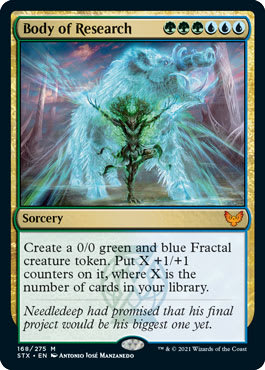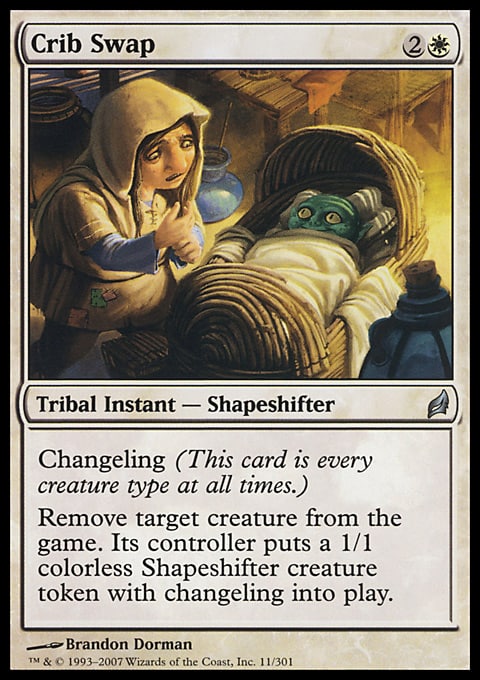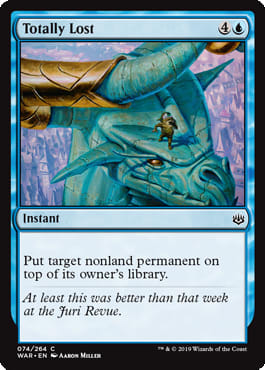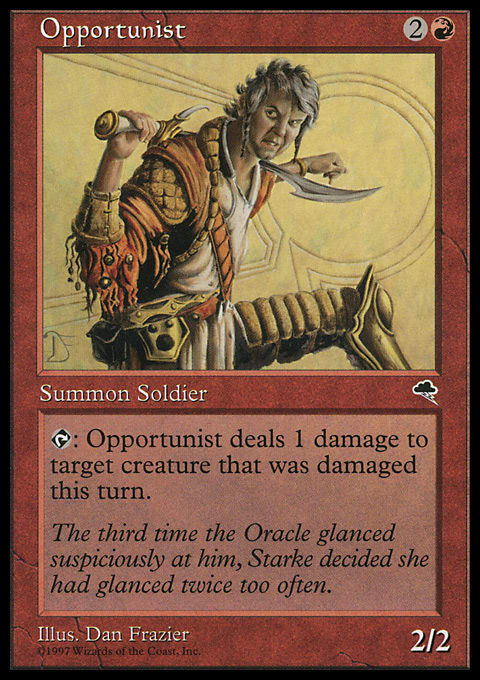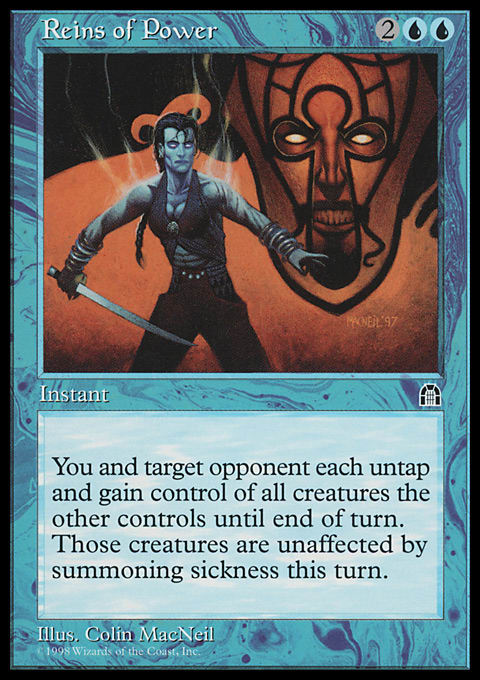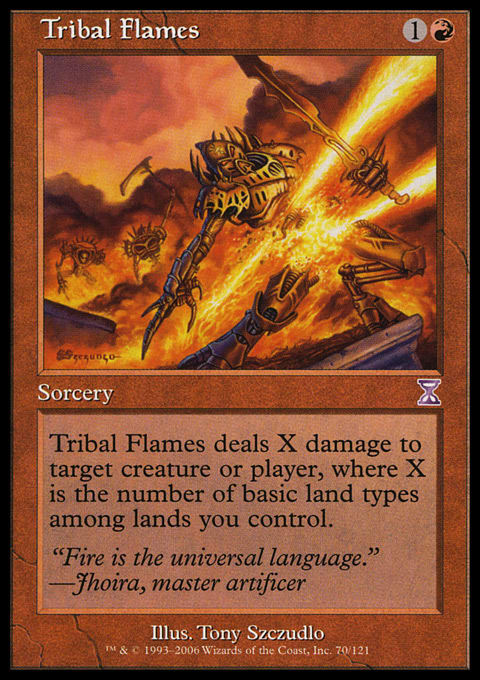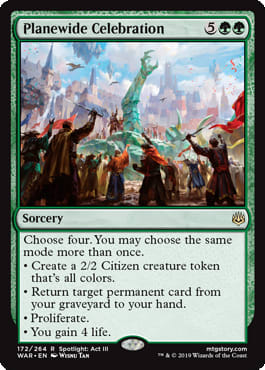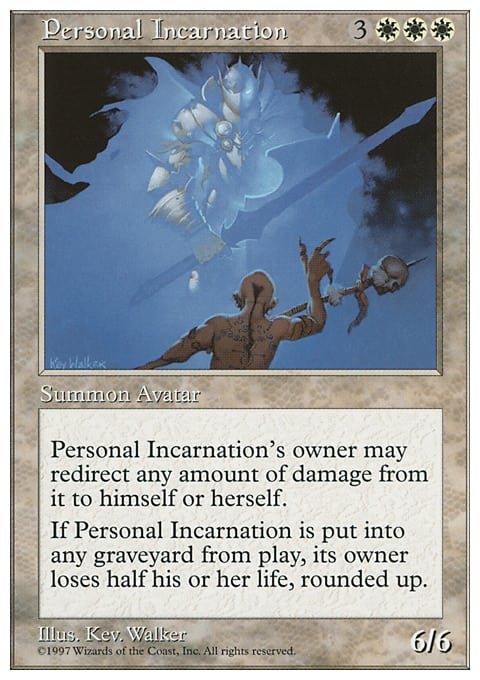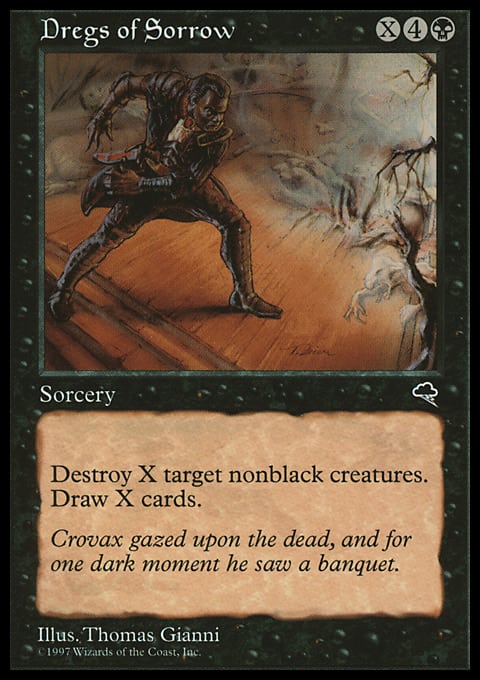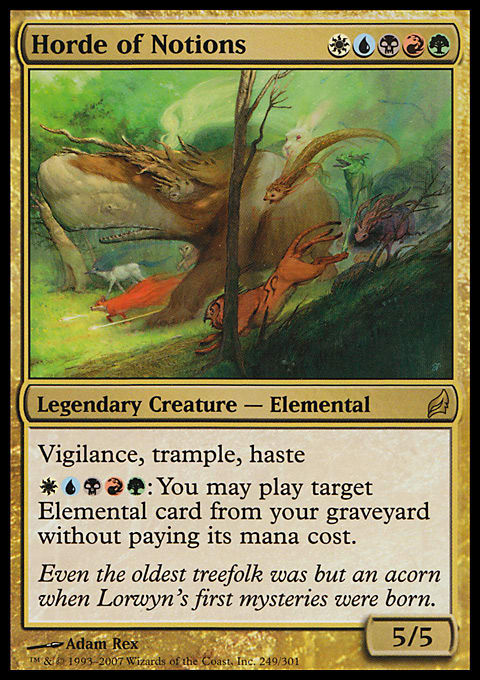Every Player You'll Ever Meet
One of the most common themes of my Magic writing is to highlight parallels between the game and the nature of our lives. Magic is embedded in our lives; it is necessarily small and insignificant, because it has to live in much smaller spaces than our children, our careers, our survival (assuming we're functioning healthily anyway), but nevertheless, Magic and life seem to have similar shapes sometimes. (This concept of a small thing embedded in a bigger thing that has the same shape is called a fractal. There's your topical Strixhaven reference.)
A few years ago, Harvard Psychologist Robert Kegan hit upon a great framework for the modeling of a person's self-concept (or, the way they model themselves in their own mind) throughout their lives. The five stages you progress through in your life, paraphrased obviously, are a little something like this:
- Stage 1: Infant impulse - Baby know nothing. Baby touch. Baby feel. Warm good, cold bad.
- Stage 2: Self interest - I am the hero of existence. The world exists for me.
- Stage 3: Group dynamics - I am a small piece of a greater whole.
- Stage 4: Independent principles - Group dynamics are unreliable and no one realizes it. I am very, very lonely.
- Stage 5: Self subversion - I can access different parts of myself arbitrarily. I have inter-nalized that I could have been born anyone else and that the dance of the world is more subtle and complex than I have access to fully appreciate.
I'm going to explore all these in detail, but there's something important to remember: The stage a person is at in their life is only an approximation; every interaction they have that requires conscious processing and self-reflection may touch multiple stages. The majority of human beings (around 60%) are in Stage 3 in the entirety of their adult life, but they may exhibit behavior in individual contexts that is indicative of other stages. Donald Trump, for instance, reeks of multiple stages as an outlier human experience, relative to the average person.
But enough about that. Let's bring it back to Magic so we can talk about what's going on, and maybe, find out a little about who we are.
Here's how to map the behavior of every Magic player you'll ever meet, including yourself.
Stage 1: Infant Impulse
What's your earliest memory? How old are you in this memory? How long were you technically alive before your brain finished "booting up"?
As human people (if you're non-human and reading this, congratulations, report to the nearest government agency), we spend a few years forming little to no memory and pissing ourselves and that's it. It is a time in our lives when we are still trying to gain our orientation in the world. We have not figured out which things to touch and what to touch them with. We can stick our fingers in our mouths and we're learning to drink milk, but by and large, our entire relationship to the world is so much malformed, ugly clay. We barely have senses, let alone selves.
But hey, you have to start somewhere.
What is the Magic version of Stage 1?
Stage 1 Magic players are not Magic players at all, really. They're lumps of non-player existing just outside the Magic world. They don't get why sleeves are important. They aren't sure what game their kid is playing, but it's very important to pick them up at the card shop at a certain time. They don't know what we're doing. They may not know we exist.
If you are a Stage 1 Magic player, you can't even begin to parse what you're reading right now. It's possible you're a federal agent investigating me, the author. Please let me go. I'm innocent (probably).
Not much else makes sense. You're lost, friend! Get out of here! Go read another thing! This is an article about Magic cards!
Examples of Stage 1 Magic Players:
Think of a random person in the world. They're probably a Stage 1 Magic player. Most of our parents, our partners, and most of the people we will ever meet stay at Stage 1. They just don't get this, man.
Imagine a large city. Now imagine a local game store in that city. Now think of all the people in a play room at that local game store. Everyone in the city not in that room is a Stage 1 Magic player.
They're tokens not on the battlefield. They're not part of the game. They have no business here. Some day they might learn to play Magic, but today is not that day.
At a Funeral, a Stage 1 Individual Will:
Crawl around touching things in order to orient themselves and their body map to the environment. They don't know who is around them, who is in the casket or why, or what any of the greater meaning of any of this situation could possibly be.
It's an enviable spot, really.
Stage 2: Self-Interest
At some point brain chemicals and head meat get enough harmony going to make you really good at predicting patterns in the world. You stop falling down like a fool all the time. You're mostly able to account for your body and the directions it takes, give or take. You have identified yourself as a control agent in the world that wants to do good things for itself. There's only one catch.
That's all it wants to do.
The world is a story and Stage 2 people feel they are the protagonist. When bad things happen to someone who lives life in Stage 2, it is a universal tragedy of the human condition. When good things happen to someone who lives life in Stage 2 it is a given, obvious outcome as foretold by mad dog self-interest as filtered through the hero narrative of their mind.
What is the Magic Version of Stage 2?
The truth hurts, but some of us are here.
Salty players carry with them an identification of anger, but I think that covers what it's really about: confusion. The anger is a downstream emotional reaction to a fundamental confusion about existence: "something inside me said that I was the hero, I believed I was the hero, but... the hero lost?" The world no longer has meaning and it is very, very confusing.
It will frequently manifest vocally as a recontextualization of the situation. "I think if we had more games, I'd get that one most of the time." "Despite this match, I think I'm still favored." Whatever. We've all heard it. I'll spare you further exposure.
I suspect some majority of players who cheat are Stage 2 citizens that have made the incorrect intuition that getting to Stage 3 is about win percentage.
Playing against a card-carrying Stage 2 player doesn't come up that often, but when it does it'll be pretty miserable. Unless you're winning in a prolonged way, in which case it's the time of your life.
Examples of Stage 2 Magic Players:
Anyone who stops having fun as soon as they stop winning is at least in danger of the Stage 2 bear trap. Obviously, there's a good healthy nature to honorable competition, but to lose meaning because of a loss is pretty shaky ground, especially if you've cleared your teens. People who cheat basically ever own property in Stage 2.
At a Funeral, a Stage 2 Individual Will:
Check their phone constantly and smack the widow's bum.
Stage 3: Group Dynamics
At some point, a lot of individuals will have noticed they're not completely autonomous heroes in the world. Healthily, maturely, they have shed the idea that the best explanation of their lives is that they are the player character hero of a giant MMO that is there to ensure they win and feel good all the time. The new and improved model is about how one relates to some greater whole.
Humans come up in families, classrooms, communities, nations. Just as an individual neuron in your body belongs to the greater whole of you, the greater whole of you belongs to an even bigger thing. In terms of the superorganism of a country or planet, you are the tiny neuron. The result of this is an awareness that your self is not an isolated being on an island of unlimited autonomy; you are part of a bigger structure.
Nearly everything that takes place in the public square of life is based on Stage 3. Stage 3 is deeply entrenched in societal norms and cultural expectations. It is the setting of job interviews, shopping malls, and television commercials. It is the Super Bowl, the latest omnipresent meme, and the water cooler at the office. It's the reason people wear uncomfortable clothes to look a certain way and say "bless you" after someone nearby sneezes. It's the basis of any joke Jerry Seinfeld has ever written.
If you're having a hard time thinking of places where Stage 3 isn't the prevailing psychology, good job. You're right! It is most likely your life as you know it, and you're probably never leaving it. Get comfortable.
And that's great! It works pretty well. Tribal Humans are decent in the meta. Go figure.
What is the Magic Version of Stage 3?
Again, it's the majority. Magic has an enormous sense of community, and this Kegan framework gives us a great insight into why it makes many so players fulfilled in a way other things in their life seemingly do not, at least not in the same way.
I have an inclination that Magic attracts many that are not intuitively Stage 3 individuals in the most mainstream bell curve of our society. Stage 3 individuals wish to discuss weather and current events. They wish to signal in-group status and to coordinate themselves in the most general social hierarchy. Many Magic players are highly analytical thinkers, artists, eccentrics, and so on; Magic provides a way to shift the Stage 3 parameters so that many people who are not able to experience community properly in greater society have somewhere to comfortably exist in that Stage 3 space. The end result is a huge group of people suddenly finding themselves more socially happy than they've ever been outside of the game, which is probably the best thing about Magic, full stop.
Examples of Stage 3 Magic Players:
A big majority of players are here, both inside and outside of the tournament hall. It's hard to get crazy invested in Magic without sharing the experience with others. We share battlefields and bathrooms, flying our nerd flags proudly as a many-headed chimera of competitive and communal joy.
So, if most people never get out of Stage 3, what the hell comes after it? How is it possible this continues in a way that most people aren't even aware of? Isn't Stage 3 the way to be since it has the most comfort and the most human interaction? Isn't it the crux of our entire progress as a species, our ability to build things together and share ideas?
At a Funeral, a Stage 3 Individual Will:
Hang their head and look distraught. Later on, circumstances permitting, they can find a bunch of other Stage 3 people to confirm that it was reprehensible that that one Stage 2 guy slapped the widow's bum.
Stage 4: Independent Principles
Who is this mysterious Stage 4 person? What are they about?
First, let's take a second to remind ourselves that this is not meant to be a "one stage fits all" framework. The stage you're at is a general make-up of the way you think about who you are, but it is merely a useful guide-line to talk about very general patterns of adult social development. At any closer detail, basically any moment in a person's life will be a big messy hybrid of these things. It's not a twelve-step program or a BuzzFeed quiz; it's more resilient than that, but that also means it's more complicated.
Enough of the delays! What's Stage 4?!
Stage 4 is a strange one. It's the one best to skip altogether, if you can help it.
I don't want to overstate it, because I'm not positive, but some part of me wants to say that Stage 4 is the reason I'm writing this article.
Some Stage 4 individual out there may not know they're in Stage 4 until they read this. They may feel like an outlier, a reject, an exile, and they may not understand why. They may get the distinct impression that something is very important to them that other people are only pretending is important.
The progression through these stages in some sense is a zoom out. You start small, get to yourself, then keep zooming out until Stage 3.
Stage 4 is what happens when you screw up and keep zooming.
It's when all the Stage 3 people sat down when the music stops and you're still standing up.
When you're in Stage 4 people are baffling. Your healthy Stage 3 connections have failed for whatever reason. Maybe you can't communicate well or you have a mood disorder or had a traumatic episode or you lost a child. Maybe you're coping with the reality that you don't feel at home in your body to the point you're going to have to radically alter how you live your life, and nobody else in your orbit understands this. It could be as simple as being born with a predisposition for precision and technical detail. Stage 3 finds you annoying, because Stage 3 is about right and wrong.
Stage 4 is about true and false. And you can't help that you know the difference.
Stage 4 has plenty of comorbidity with all kinds of socially maladaptive events. It's an unenviable brain state composed of profound loneliness, confusion, disorientation, and isolation.
What is the Magic Version of Stage 4?
Let's imagine a brand new Magic player, an unusual outsider type looking to pick up a hobby on the recommendation of a co-worker or therapist or parent - just something to do to make a few friends. They're in Stage 1 until they learn the rules and how to maintain a game. They sort of skip over Stage 2 because they're coming at Magic well into their adulthood and it's easy for them to keep a cool head, even while losing. Stage 3 arrives in the form of a playgroup and things progress. Then suddenly the invitations to play sessions stop.
This brand new player does a quick memory check (because they have incredible recall, of course) and thinks back to all kinds of things they said intuitively that seemed objectively true but that may have upset the others in the group. The host player may have said something incorrect that everyone else was willing to let go, but that this new player couldn't; because ethically, false information should be clarified.
But this made the group uncomfortable. It's not worth the sacrifice to the group comfort to keep inviting this person.
This is life at Stage 4.
Examples of Stage 4 Magic Players:
In the Magic world, Stage 4 is probably best epitomized by disillusionment and disconnection. It's the hastily sold collection. It's the 0-1 drop at a tournament. It's finding reasons to not go or not play. It's uninstalling Magic Arena.
It's giving up social connections and punishing yourself for not being the same person you were when you were at Stage 3 and stuff just worked.
Nobody goes to Stage 4 because they want to. It's why people live in Stage 3, by and large. It's nice there. There's good parking and a pool for your children to play in during the summers. If you can keep your life there, you'll do well. You'll never have a reason to speak to the manager of life itself and complain.
But that's not for everyone.
Stage 4 isn't an aspiration. It's a burden, a sentence. For some, it's a life sentence. Friedrich Nietzsche got blown out by Stage 4. Fame probably put Kurt Cobain into Stage 4 and took everything else with it.
But in fitting with the resonant themes of this zoom out progression, if you just keep going, there's more to see. Keep zooming out...
At a Funeral, a Stage 4 Individual Will:
Find it infuriating that the Stage 3s are hanging their heads and looking distraught because they're signaling sadness, not because they're fundamentally, actually sad, though many obviously are. This is body language to signal yourself as part of the in-group of the social context. Furthermore, pointing out this provable truth is a service to be peer reviewed, not an inappropriate insult. Other than the dead, I am the most honest person in this freshly mowed acre. Oppressed, destined for the void, and so forth.
Zoom out... more... more... keep going...
Stage 5: Self-Subversion
At some point, if a Stage 4 hangs around long enough, painstakingly debugs their relationship to the universe, and looks at more and more of it, they can eventually internalize so much that something clicks. Then hang ups about the self become largely arbitrary.
It's like the mind version of that part at the end of Jurassic Park where the blonde girl does the hacking and locks a door right before a dinosaur eats all the protagonists. Your heavy sense of self lets go long enough for you to see your circumstance from another angle, and then another, and then another.
You start to understand how constructed things are, how constructed you are. You begin to see that you have your intuitions about your life for the first time the right way around; and that before, those intuitions were controlling you.
The stories you have about other people aren't the stories they have about themselves. Or the ones they have about you.
The stories you've told yourself about yourself aren't real. You made that up.
Your mind taps out. It says, "Good job, weirdo. You couldn't leave well enough alone. Well, you've entered the cheat code. What do you want to do, smartass? I'm yours."
The whole world's in there. It's all yours.
It's much, much better than Stage 4. There's also a good argument to be made it's better than Stage 3, but you'll never convince anyone in Stage 3, so why bother.
Once you're here, you can do what you want. Most LARP in Stage 3 while keeping their Stage 4 lessons, but it's up to you.
What is the Magic Version of Stage 5?
It's when you stop working for Magic and start letting Magic work for you. It's when you stop defining all of your Magic experiences by other people's standards. It's when you enjoy the game for what it is and you don't even get angry when another player is salty. Because it's not even just that they're not as far along in their development as you might be; it's that in the big picture you could've been in their seat as arbitrarily as you currently sit in yours.
And you appreciate it. Dearly.
Examples of Stage 5 Magic Players:
They're hard to spot, but assuredly, they're having (by far) the most fun.
At a Funeral, a Stage 5 Individual Will:
Resurrect the departed? I don't know, me nor anyone I know is near this level of maturity. I like to think if I keep growing as a person I'll gain such Stage 5 powers some day. But yeah, I don't know yet, so I'm kind of guessing. Fingers crossed it's reanimation, though.
(~_^)
The Rascal
The "Indestructible" Danny West
















